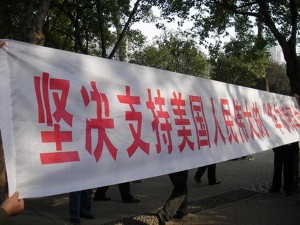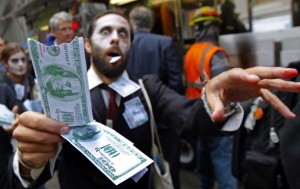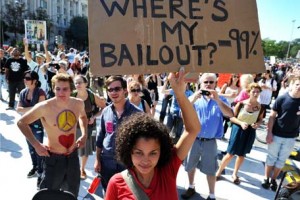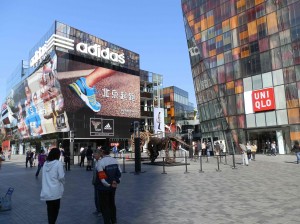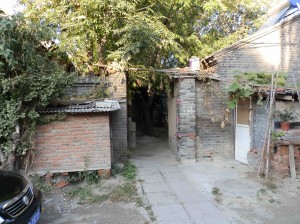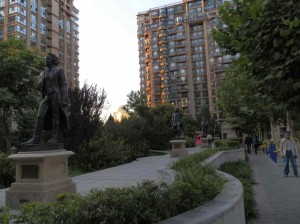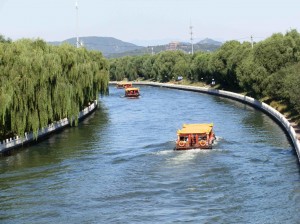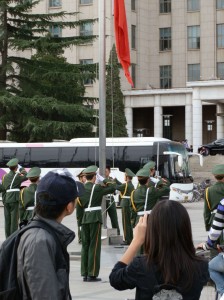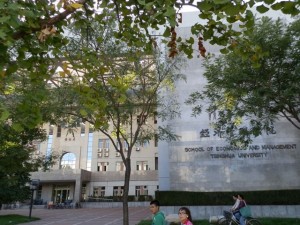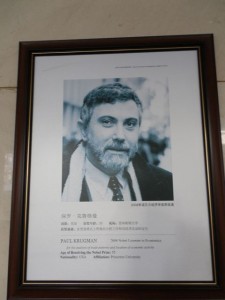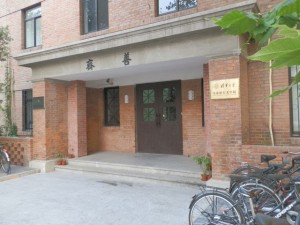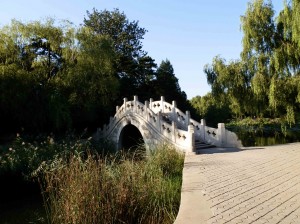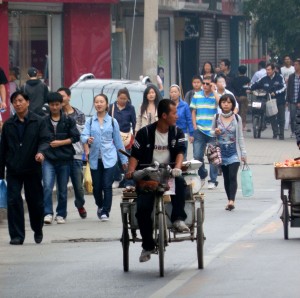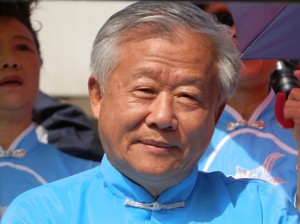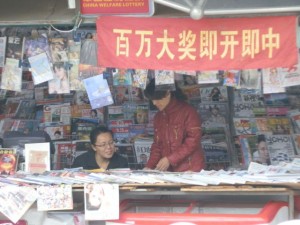For some, the idea of people taking to the streets all across America to question capitalism, the Wall Street power structure and the Man, in general, may confirm a Chinese idea that the U.S., in historic decline, is rife with instability and confusion. Babel on the other side of the planet, perhaps, and a far cry from stability-loving China. The heavy coverage may also serve to reassure the Chinese about their health and continuing growth, as the one big economy still perking along.
CCTV, Channel 24, the English-language arm of the state broadcasting service, has aired repeated broadcasts about the marches. Correspondents on the ground in NYC have interviewed demonstrators. A group there sporting a Communist banner got some short play, unsurprisingly. And CCTV even dedicated a big chunk of a regular debate and discussion program called Dialogue to the demos, linking the protests to marches and occasional violence in Europe and Greece, and thus painting a worrisome picture of chaos outside the comfortably safe borders of China.
It would be wrong, however, to look on the coverage as a heavy-handed bid to soothe Chinese about the superiority of their system. For one thing, the talking heads on Dialogue – an American prof from the New School in NYC, a German from the Imperial College in London and a Chinese international-relations scholar from Tsinghua University in Beijing – made it clear that the dynamics of the Eurodemos and the U.S. affairs are quite different. For another, it has been repeatedly pointed out that the demonstrators have yet to cohere around a single agenda beyond their furor at lingering high unemployment.
Moreover, some of the discussion has been surprisingly astute. For instance, one of the folks argued that things would be a lot worse if not for the bank bailout that protesters have pilloried Obama over. And that was the Chinese fellow from Tsinghua! The Chinese academics, particularly those who have studied in the West, are a sharp bunch, not to be underestimated. Certainly, they aren’t faulting capitalism as a concept; they just want to do better at it than the West.
Still, the subheads that the producers at CCTV dropped in under the speakers were, well, entertaining. Things such as “problems within the capitalist system” and “rich get richer, poor get poorer.”
As for my students, they have been mystified and entertained. One, who studied for a while in Florida, maintained that the demonstrations suggest that the U.S. has a serious problem. Another, however, said he found the business amusing, noting it’s the kind of thing that would never happen in China. Certainly, the government here would never permit the raft of videos on the Net agitating for the movement, as has happened in the U.S. He said he was once tasked by his media employer to cover a demo here and police broke it up before he could get there. That sort of thing is just not done in China.
There has been much discussion, too, about how the demos seem to be a left-wing response to the Tea Party. That idea has come up on TV and was suggested by an American visitor, an economist, who was kind enough to visit my class in business and economic reporting this week. He thought it perfectly natural for young people, especially, to do this sort of thing in the U.S.
If the Chinese media have paid so much attention because the demos offer comfort that the Chinese system is superior, the editors may be making a mistake. It’s possible that some Chinese see the demos not as a signs of decay but rather as evidence of a robust democracy debating its future in civil, at times carnival-like, ways. What’s more, China has big and growing problems with income inequality, soaring housing prices and food-price inflation – all of which could indeed put Chinese into the streets, if they had the right to do that. My students recently have been reporting on major unemployment and underemployment issues among millions of college graduates, as well as among impoverished migrants from the countryside.
Indeed, there was a supportive demonstration in Zhengzhou, the capital city of Henan Province. The website, ChinaHush.com, reported that the news was removed from a lot of Chinese mainstream media sites but continues to pop up on various Internet forums.
Might the Chinese follow the coverage of the U.S. and get a touch envious? Is the freedom to speak one’s mind, to make one’s grievances known, an appealing thing? Is influencing your country’s politics – proving that the right wing isn’t the only game in town – so bad?

